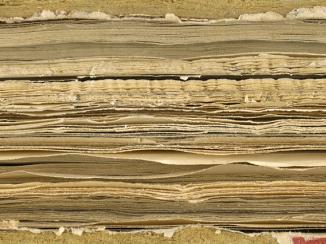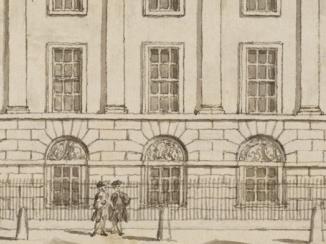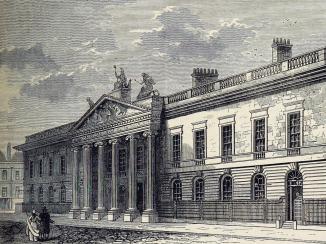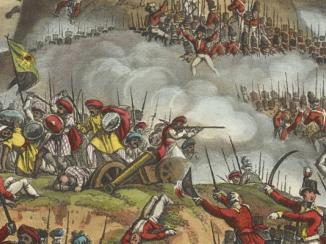Overview
Both the East India Company and the Board of Control Formally known as the Board of Commissioners for the Affairs of India, it was established by an Act of Parliament in 1784 to supervise the activities of the East India Company. recognised the importance of their archives and took steps to ensure their preservation. The Company established the office of Registrar and Keeper of the Indian Books in 1771, and the Board appointed a Librarian and Keeper of the Papers from 1811.
Vast Amounts of Paperwork
When the India Office The department of the British Government to which the Government of India reported between 1858 and 1947. The successor to the Court of Directors. was set up in 1858, it was faced by vast amounts of official paperwork generated by its predecessors and needed to take steps to make it more manageable. During the 1860s, the India Office The department of the British Government to which the Government of India reported between 1858 and 1947. The successor to the Court of Directors. surveyed this mass of material, and destroyed large quantities, particularly of commercial records, and anything considered to be ephemeral. It retained only the records deemed to have historical value or continuing practical use.
The preservation and management of the pre-1858 archives and the rapidly-accumulating records of the India Office The department of the British Government to which the Government of India reported between 1858 and 1947. The successor to the Court of Directors. was a considerable challenge which was assigned to a central Record Department in 1884. By the time the India Office The department of the British Government to which the Government of India reported between 1858 and 1947. The successor to the Court of Directors. was abolished in 1947, these official records occupied approximately nine miles of shelving.
Manuscripts and Private Papers
In 1801, the Directors of the East India Company established a library to care for the books, manuscripts and personal papers placed in their care by their representatives in India and elsewhere. The Company and India Office The department of the British Government to which the Government of India reported between 1858 and 1947. The successor to the Court of Directors. continued to acquire collections of personal papers, which were known as ‘European Manuscripts’ to distinguish them from Asian language material.
After the independence of India, Pakistan and Burma in 1947 and 1948 respectively, the Indian Records Section (later the India Office The department of the British Government to which the Government of India reported between 1858 and 1947. The successor to the Court of Directors. Records) and the India Office The department of the British Government to which the Government of India reported between 1858 and 1947. The successor to the Court of Directors. Library (incorporating the European Manuscripts, or India Office The department of the British Government to which the Government of India reported between 1858 and 1947. The successor to the Court of Directors. Private Papers Documents collected in a private capacity. as well as printed materials in Asian and European languages, oriental manuscripts and visual materials) were administered by the Commonwealth Relations Office, later the Commonwealth Office, and (from 1968) by the Foreign and Commonwealth Office. In 1982, the India Office The department of the British Government to which the Government of India reported between 1858 and 1947. The successor to the Court of Directors. Library and Records were transferred to the British Library.
Further information about the India Office The department of the British Government to which the Government of India reported between 1858 and 1947. The successor to the Court of Directors. Private Papers Documents collected in a private capacity. is on the British Library website.
Catalogues of the India Office The department of the British Government to which the Government of India reported between 1858 and 1947. The successor to the Court of Directors. Records and Private Papers Documents collected in a private capacity. can also be viewed on the site.



